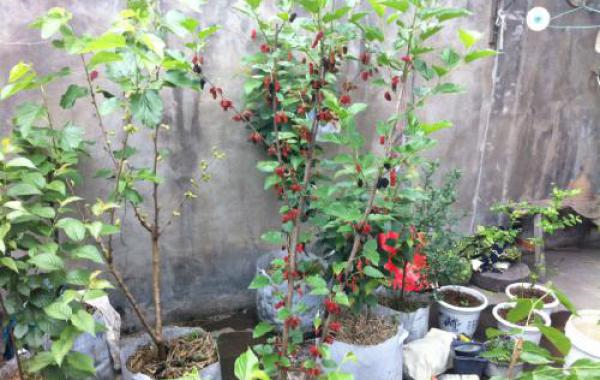Which pesticides cannot be used on flowers and fruit trees?

Which pesticides cannot be used on flowers and fruit trees.
Flowers and fruit trees should be careful when spraying pesticides, some pesticides can not be used.
Due to the different types of flowers and the differences in the stages of growth and development, some common flowers often cause drug damage when using pesticides, such as falling leaves in light cases and plant death in serious cases, resulting in great losses. Therefore, for the ornamental plants which are sensitive to pesticides, it is particularly important to select pesticides correctly. The following is an introduction to the drug damage caused by common pesticides.
Stone sulfur mixture: it is harmful to peaches, plums, plums, pears and other plants. If it is used on these plants, it is best to spray it in the deciduous season. Do not use it in the growing season or during the flowering and fruiting season.
Fenitrothion: fenitrothion is used to kill insects in high temperature season, which is harmful to pomegranate and cruciferous flowers to a certain extent.
Bordeaux liquid: peaches and plums are sensitive in growing season; pears, apricots and persimmons are prone to drug damage when the amount is lower than the multiple, and grape is prone to drug damage when the amount is higher than the multiple.
Dimethoate and omethoate: kiwifruit is particularly sensitive and should not be used; it can cause obvious drug damage to rose ornamental plants such as plum blossom, cherry blossom, elm leaf plum, pear, apricot and pear; dimethoate shrimp flower and coral flower are also very harmful. If omethoate is sprayed between June and October, it will often cause petals to wither and lose its ornamental value.
Dichlorvos: dichlorvos is obviously harmful to ornamental plants such as plum blossoms and cherry blossoms, as well as peaches, apricots, 20th century pears and Jingbai pears. Usually, other kinds of pesticides should be used. Dichlorvos also has varying degrees of drug damage to rhododendron, steamed bread willow, kiwifruit, Robinia pseudoacacia, walnut and so on. When using pesticides to control these plant pests, we should be very careful so as not to cause unnecessary losses.
Trichlorfon: it is harmful to cherry blossoms, plum blossoms and so on.
1. Dimethoate and omethoate: kiwifruit is particularly sensitive and should not be used; obvious drug damage can occur to rose plants such as plum blossom, cherry blossom, elm leaf plum, sticking pear, apricot and pear; dimethoate prawns and coral flowers are also very harmful. If omethoate is sprayed between June and October, it will often cause petals to dry up and lose its caressing value.
2. Dichlorvos: dichlorvos is obviously harmful to plum blossoms, cherry blossoms, peaches, apricots, 20th century pears and Jingbai pears. Other kinds of pesticides should be used in all circumstances. Dichlorvos also has different levels of drug damage to rhododendron, steamed bread willow, kiwifruit, Robinia pseudoacacia, walnut and so on. When using pesticides to control these plant pests, they should be very stable so as not to cause unnecessary losses.
3. Trichlorfon: it is harmful to cherry blossoms, plum blossoms and so on. Stone sulfur mixture: it is harmful to peaches, plums, plums, pears and other plants. If it is used on these plants, it is most fortunate to spray in the deciduous season. Do not use it in the growing season or during the flowering and fruiting season.
4. Fenitrothion: the use of fenitrothion in high temperature season is harmful to pomegranate and is dangerous to cruciferous flowers and plants. Bordeaux liquid: peaches and plums are sensitive in growing season; pears, apricots and persimmons are easy to cause drug damage when the amount is lower than the multiple amount, and grape is prone to drug damage when the amount is higher than the multiple amount.
Related
- What if the leaves of potted flowers turn yellow?
- Florescence Control of several Flowers
- Anti-freezing technology and post-freezing nursing technology of flowers
- What is the classification of flowers? What are the common methods of flower classification?
- Prevention and control of alkali and acid damage of flowers in courtyard
- Technology of Anti-freezing and restoring growth of Flower seedlings in greenhouse and greenhouse
- How does flower fertilization not hurt the root? Fertilization technology of flowers
- Key points of disinfection in flower greenhouse
- Several pesticides that are banned or used cautiously in flowers
- How to fertilize the flowers that watch the leaves?


